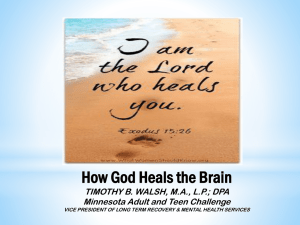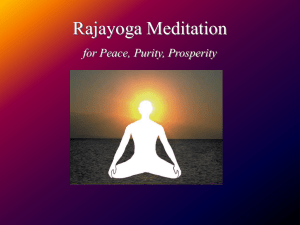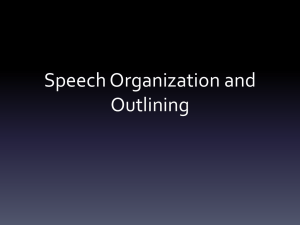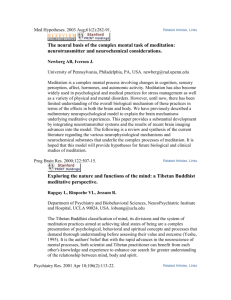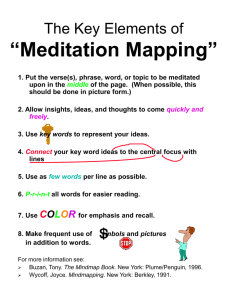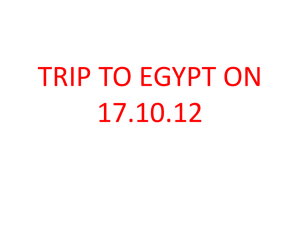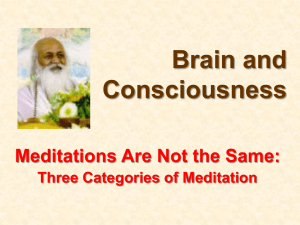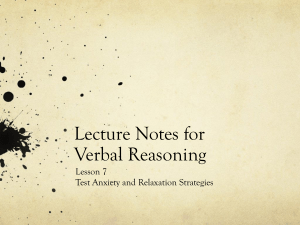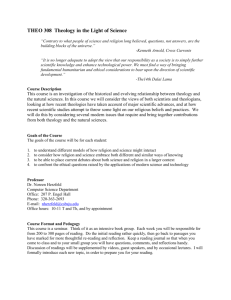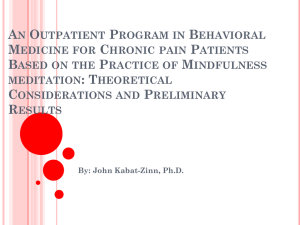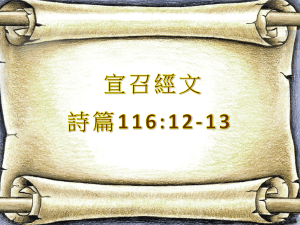Neuro of Rel Exp
advertisement
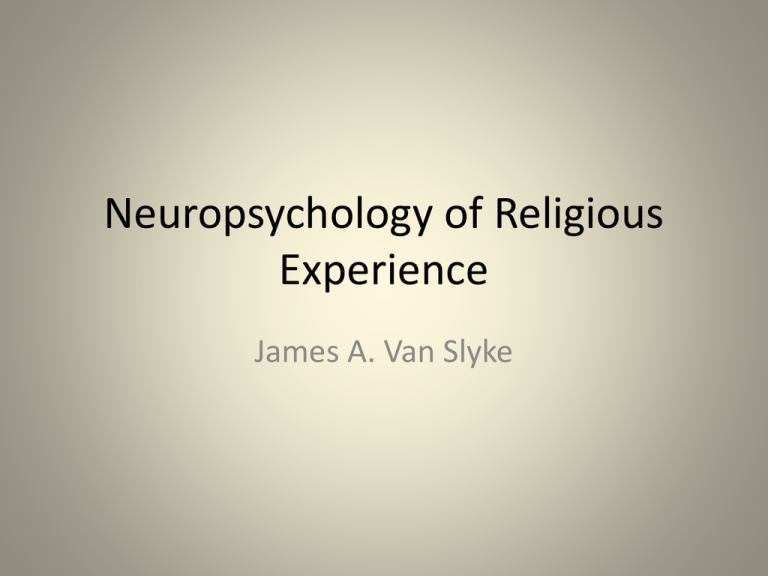
Neuropsychology of Religious Experience James A. Van Slyke Andrew Newberg • University of Pennsylvania – Medical Doctor – Neuropsychologist/Neuroscientist • Investigates neural correlates of religious experience – “Neurotheology” – Meditation, Prayer, Glossolalia Cognitive Sciences and the Mind • Neuropsychology of Religious Experiences – Brain images of Tibetan Buddhists and Franciscan Nuns • Increased activity in frontal lobe and right parietal lobe during meditation • Brain is quite active in a specialized way during religious experience Brain changes in response to meditation (Newberg et. al. 2009) • Differences between long-term and shortterm mediators at rest – Long-term mediators showed differences in brain activity in several different areas (prefrontal cortex, parietal cortex and others) – Greater asymmetry in thalamus • Causes? – Meditation may change brain activity over time – Certain brain architectures may lend itself to meditative states Meditation effects on Memory Loss (Newberg et. al. 2010) • Subjects – Mild forms of memory impairment (Age = 52-77) • 8 week meditation program • Increased brain activity in prefrontal, superior frontal, parietal areas • Improvements in neuropsych testing – Verbal fluency – Logical memory Ritual Effects on Anxiety (Anastasi & Newberg 2008) • Subjects - 30 students from Catholic College – 12 students recited rosary – 18 students watched religious video • Students who recited rosary showed significant decrease in anxiety • Religious ritual practices may play important role in psychological well-being Speaking in Tongues and Brain activity (Newberg et. al. 2006) • Speaking in tongues (glossolalia) demonstrates increases brain activity in frontal lobes, parietal lobes, and left caudate

